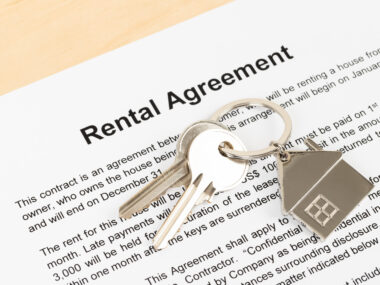
It is better to sign a written lease agreement rather than enter an oral agreement with the landlord. An oral agreement can usually not be legally enforced in New York State, so you may save yourself from complex legal disputes in the future. But it may be equally bad to enter a written agreement with uncalled-for expectations and requirements by the landlord. With that being said, please follow along to find out the provisions not allowed in a lease agreement and how a proficient New York City real estate attorney at Zimmet Law Group, P.C. can advise you before signing one.
What provisions are not allowed in a lease agreement?
When a landlord hands you a copy of your lease agreement, you must dedicate time to comb through its terms and conditions thoroughly. That is, you should not feel pressured to rush and sign a contract that does not contain the appropriate provisions. Without further ado, your landlord is not allowed to mandate the following:
- Your landlord cannot require you to use your purchased, owned furniture as a security deposit for your rent.
- Your landlord cannot exempt themselves from liability for injuries and damages caused by their negligence.
- Your landlord cannot waive your rights to a jury trial in a lawsuit brought forward by either of you for injuries and damages.
- Your landlord cannot waive your rights to recover attorney’s fees and costs incurred after a lawsuit brought on by either of you.
- Your landlord cannot waive their obligation to provide you with a safe, clean, and livable rental unit (i.e., warranty of habitability).
- Your landlord cannot require you to get their approval before having immediate family members and dependent children live with you.
It is also worth mentioning that your landlord must write up this lease agreement using plain language. But even so, you should get an attorney to read this contract alongside you.
What are the standard steps for renewing a lease?
First of all, when your residential lease is about to expire, you should circle back to your lease agreement and see if it contains a renewal clause. Otherwise, your landlord may not be obligated to give you a renewal option. This is unless your rental unit is subject to rent regulation in New York State.
Once you confirm your ability to renew, you must look into whether your lease agreement sets a deadline for when to give your landlord notice. Again, if you miss this date, your landlord is not expected to accept your request to renew.
Lastly, once you give notice of your intention to renew, you may work on a negotiation plan to improve your standing lease agreement. Or, if your landlord hands you an updated contract, you may work on analyzing whether it still contains appropriate provisions.
Contact a talented New York City real estate attorney to gain the emotional and legal support you require during this pivotal time. Our team at the Zimmet Law Group, P.C. looks forward to helping you.


